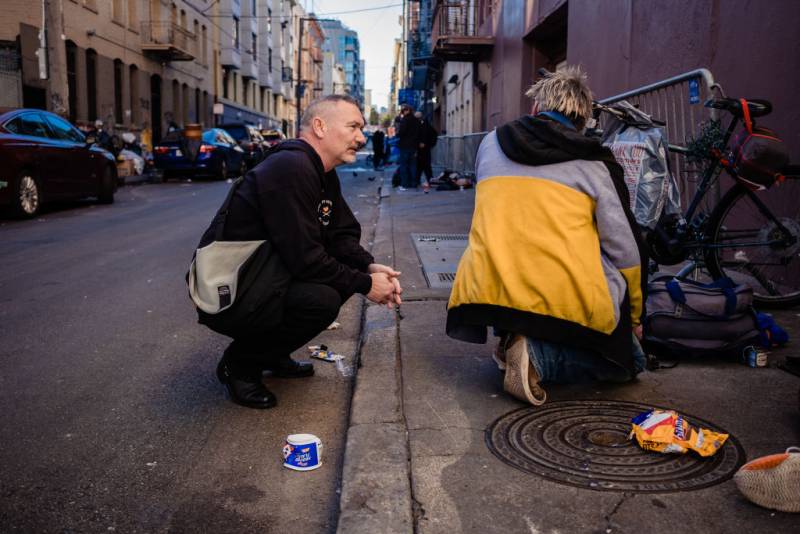“We are ready, we’ve done the work,” said Laura Thomas, director of harm reduction policy at the SF AIDS Foundation, the city’s largest provider of harm-reduction services.
It’s unclear when a site would open, however, as the groups still need to find a location and seek out funding to run it.
If Newsom had signed SB 57, it would have provided legal protections for health care workers who operate the sites. But the two organizations are confident they can run the clinic without interference from law enforcement, after City Attorney David Chiu on Monday pledged his support for such a site.
“The tragedies on our streets have to stop,” Chiu told KQED. “We have to stop the deaths.”
“Every day we don’t act, two more people will die tragically on our streets,” he added. “Overdose prevention programs have been proven in over 100 places around the world. There have been 22 studies of these sites that have found that they reduce deaths and improve access to care while not increasing public safety issues to the surrounding community.”
More than 1,700 people have fatally overdosed in San Francisco since 2020, often after inadvertently consuming fentanyl, a synthetic opioid up to 50 times stronger than heroin, according to the latest figures from San Francisco’s medical examiner — far outpacing the number of residents in the city who have died from COVID-19.
Federal law still prohibits operating, owning or renting a location for the purpose of using illegal drugs. But the U.S. Department of Justice has allowed two supervised consumption sites to operate in New York, and Attorney General Merrick Garland’s office has said it is “evaluating” the idea and talking with regulators about “appropriate guardrails.”
San Francisco wouldn’t fund or operate a site in the city, Chiu told KQED. But he wouldn’t stop one either, he said, pointing to the model currently in operation in New York, where city leaders authorized the New York Harm Reduction Educators and Washington Heights Corner Project to run two sites.
Newsom’s veto message said the unlimited number of sites authorized by SB 57 could create a “world of unintended consequences” and exacerbate current drug problems.

